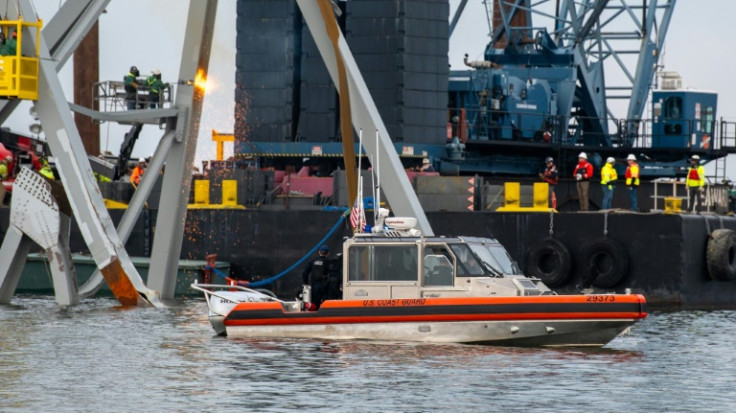
Crews opened a second temporary channel in the Patapsco River on Tuesday, allowing larger ships to access the Port of Baltimore for the first time since the collapse of the Francis Scott Key Bridge last week.
The smaller channels will primarily serve vessels engaged in the cleanup operations and small ships stranded in the harbor.
However, officials are currently focusing on clearing the bridge debris before opening the main channel, which boasts a depth of 50 feet (15 meters), according to Reuters. Major cargo ships require a minimum depth of 35 feet for navigation.
The first vessel to navigate through the first temporary channel into the port
Monday was a tugboat towing a fuel barge, carrying cargo destined for Dover Air Force Base.
The recovery teams are trying to build a third, larger channel to accommodate large ships entering the port, as the bridge collapse had forced the closure of the port, causing disruptions in East Coast logistics.
The primary channel has remained obstructed since the fully loaded container ship Dali lost power and collided with a support column of the Francis Scott Key Bridge a week ago.
The incident resulted in the loss of six road workers' lives and led to the collapse of the highway bridge into the Patapsco River.
Maryland Governor Wes Moore said that adverse weather conditions in the last two days have compounded the already difficult salvage operation, according to AP. The rough weather has rendered conditions unsafe for divers attempting to retrieve the bodies of the four construction workers believed to be trapped underwater in the wreckage. Two bodies have already been recovered.
"We promised these families that we would do everything in our power to bring them closure, but also my directive is to complete this mission with no injuries and no casualties," Moore said.
U.S. Army Corps of Engineers Col. Estee Pinchasin described the underwater conditions as "extremely unforgiving" for divers.
"The magnitude of this is enormous," she said, adding, "What we're seeing in the water is that the wreckage has been completely collapsed. Some people use the term pancaked. But that's making it very difficult to even determine where to cut, how to cut."
According to the state of Maryland, the Port of Baltimore ranks first in the United States for the volume of autos and light trucks, farm and construction machinery, imported sugar, and imported gypsum that it handles.
While some terminal operations outside the affected area have resumed, the port is still dealing with the aftermath of the recent events.







